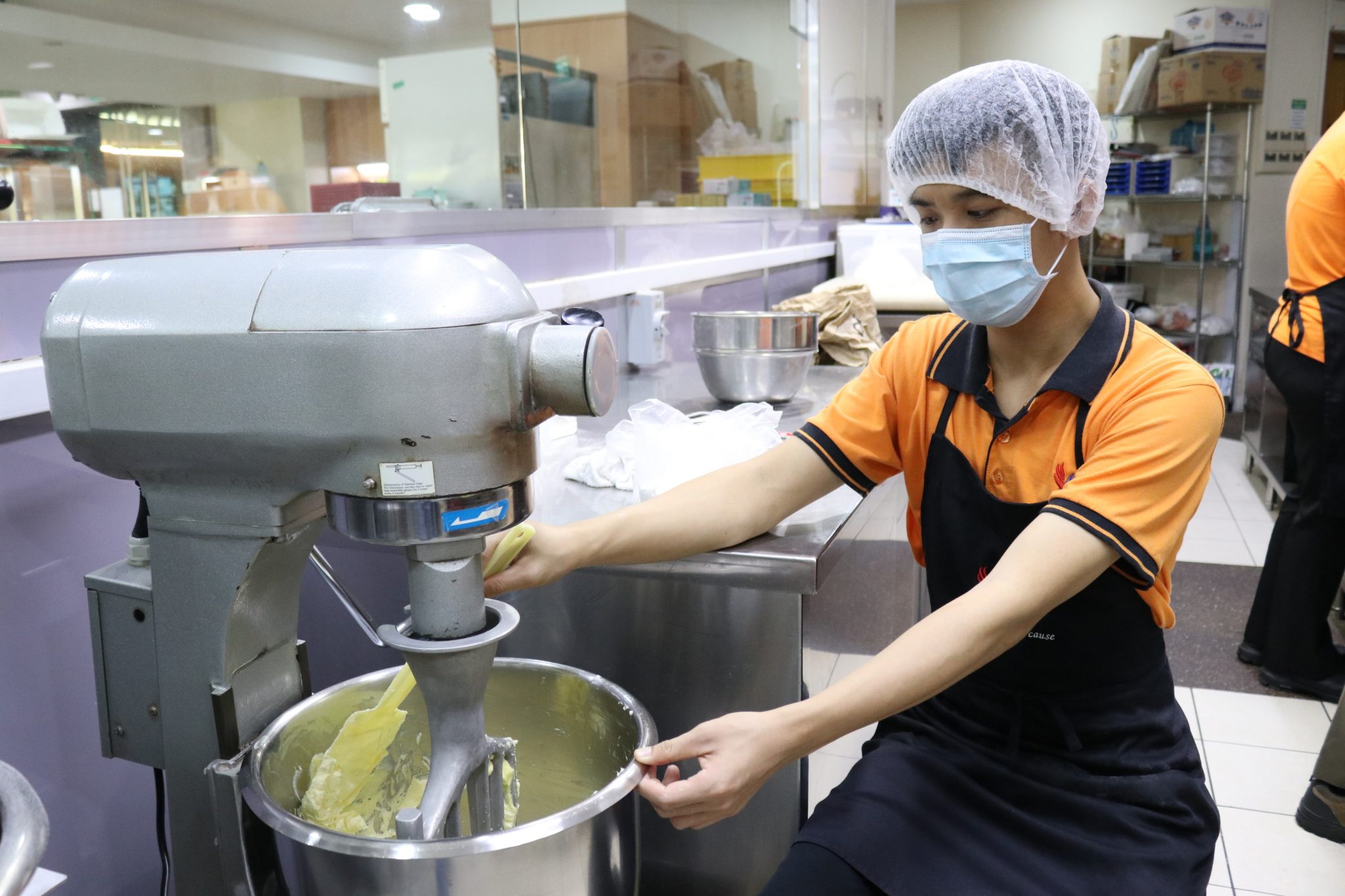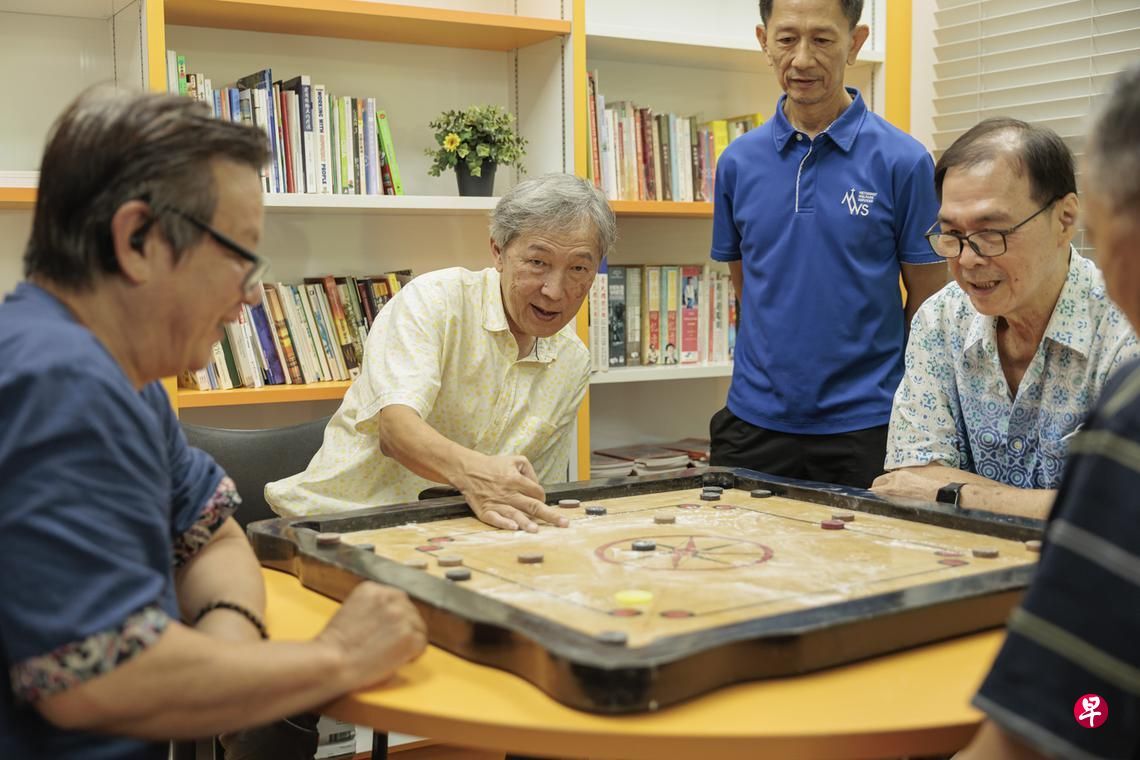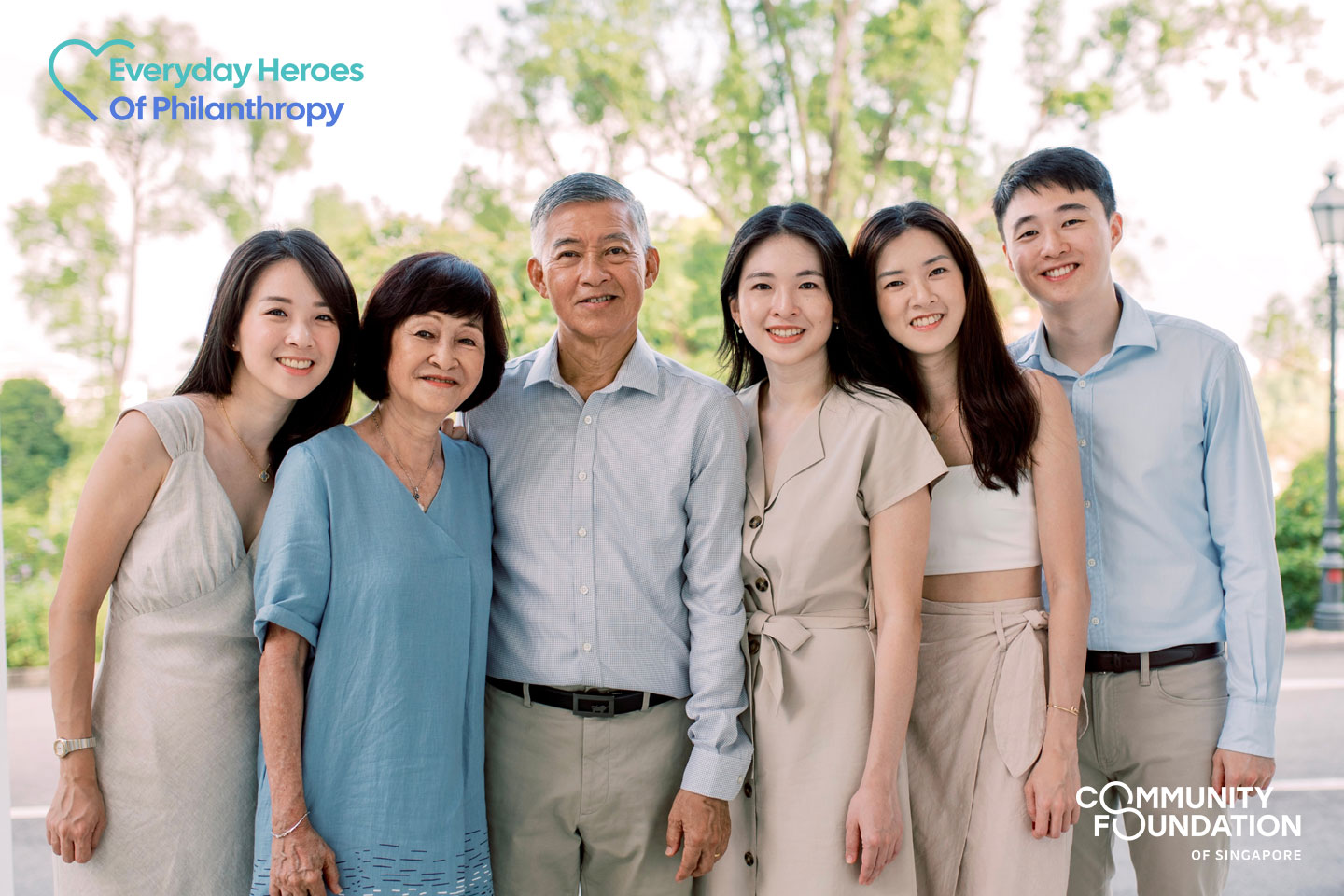Championing inclusive employment for youths with special needs


For more than 10 years, CFS donors have supported the Metta Welfare Association and its trailblazing Metta Café through the Work Readiness Programme, which equips youths with special needs with the vocational and soft skills they need for the workplace. CFS is commemorating 15 years of giving and this story is one of a three-part series that highlights the strong relationships CFS has fostered with charities over the years.
I am grateful to my trainers for guiding me along patiently. I’ve learnt many things here and I hope to become a baker one day.
Toh Ming Yi, 26 years old, Apprentice, Metta Café
Toh Ming Yi hopes to become a baker one day. The 26-year-old is an apprentice at Metta Café. Under the guidance of patient teachers, he is learning to make cookies, muffins and other baked goods. He is also picking up valuable and complementary life skills like managing money and communicating with customers, which will help him in the working world.
Like the other Metta School graduates with mild intellectual disability and/or autism who work at this inclusive café, cheerful Ming Yi has the right support to help make his dreams come true.
Building a long and fulfilling relationship
Metta Café is part of Metta Welfare Association (MWA), a charity set up in 1992 which has uplifted countless lives of those with special needs. The Community Foundation of Singapore (CFS) has had a long and valuable relationship with MWA since 2011. To date, CFS donors have generously contributed over $736,000 to MWA and have been a pillar of support for Metta Café’s Work Readiness Programme.
CFS’ continued support has enabled us to continue empowering more individuals in need. Besides equipping our youths with life skills that will better facilitate their integration into society, we were also able to fund programmes that develop social and communication skills to increase their employment opportunities.
Felicia Wee, Deputy Executive Director
Creating employment opportunities through the Work Readiness Programme
The Work Readiness Programme provides apprenticeship opportunities, on-the-job training, job attachments, life-skills training, internship training and open employment to young adults with special needs to prepare them to contribute to the workforce.
Initially offered solely to Metta School graduates, the programme has delivered such positive outcomes that students with special educational needs from other institutes such as the Institution of Higher Learning and the Institute of Technical Education also seek out internships at Metta Café.
In 2020, the café became a WSQ In-house Approved Organisation to conduct the Food Safety Level 1 certification. This enables a wider range of participants to upgrade their skills, creating greater inclusiveness and opportunities for them in society.
Metta Café’s Work Readiness Programme resonates with CFS as it is designed to improve employability, one of our key focal areas for grant making. We look for causes that empower marginalised job seekers to become contributing members of society. This can be through education, exposure to career pathways or advocating for more inclusivity.
CFS has been giving out grants to the programme since it began in 2016 and this enduring support has enabled Metta Café to increase its apprenticeship numbers.
“We value CFS as our long-term partner,” says Felicia Wee, Deputy Executive Director of MWA. “Their donors’ contributions to MWA have been significant. With their collective support, we have been able to help more youths with special needs maximise their potential.”
Encouraging long-term support through legacy giving
More recently, CFS and Metta have been working closely to encourage more legacy giving. Legacy gifts are planned future gifts such as bequests of assets or memorial funds, which offer a more sustainable and reliable source of fundraising for charities. It also opens up ways for donors to create an impact well beyond their lifetime.
With guidance from CFS, Metta has been actively engaging donors on its long-term plans and accepting all forms of legacy gifts including CPF and insurance nominations.
We are proud to maintain a long-term relationship with Metta and are committed to working with other like-minded charities to bring greater impact to youth with special needs under the CFS cause Improving Employability.
CFS is celebrating our anniversary throughout 2023—15 years of empowering donors to make a meaningful impact. Since our inception in 2008, we have received over S$292 million in donations in Singapore and disbursed over S$157 million in grants to over 400 charity partners.
To discover how you can make a difference, please visit www.cf.org.sg/contact-us/get-in-touch/.
For more than 10 years, CFS donors have supported the Metta Welfare Association and its trailblazing Metta Café through the Work Readiness Programme, which equips youths with special needs with the vocational and soft skills they need for the workplace. CFS is commemorating 15 years of giving and this story is one of a three-part series that highlights the strong relationships CFS has fostered with charities over the years.
I am grateful to my trainers for guiding me along patiently. I’ve learnt many things here and I hope to become a baker one day.
Toh Ming Yi, 26 years old, Apprentice, Metta Café
Toh Ming Yi hopes to become a baker one day. The 26-year-old is an apprentice at Metta Café. Under the guidance of patient teachers, he is learning to make cookies, muffins and other baked goods. He is also picking up valuable and complementary life skills like managing money and communicating with customers, which will help him in the working world.
Like the other Metta School graduates with mild intellectual disability and/or autism who work at this inclusive café, cheerful Ming Yi has the right support to help make his dreams come true.
Building a long and fulfilling relationship
Metta Café is part of Metta Welfare Association (MWA), a charity set up in 1992 which has uplifted countless lives of those with special needs. The Community Foundation of Singapore (CFS) has had a long and valuable relationship with MWA since 2011. To date, CFS donors have generously contributed over $736,000 to MWA and have been a pillar of support for Metta Café’s Work Readiness Programme.
CFS’ continued support has enabled us to continue empowering more individuals in need. Besides equipping our youths with life skills that will better facilitate their integration into society, we were also able to fund programmes that develop social and communication skills to increase their employment opportunities.
Felicia Wee, Deputy Executive Director
Creating employment opportunities through the Work Readiness Programme
The Work Readiness Programme provides apprenticeship opportunities, on-the-job training, job attachments, life-skills training, internship training and open employment to young adults with special needs to prepare them to contribute to the workforce.
Initially offered solely to Metta School graduates, the programme has delivered such positive outcomes that students with special educational needs from other institutes such as the Institution of Higher Learning and the Institute of Technical Education also seek out internships at Metta Café.
In 2020, the café became a WSQ In-house Approved Organisation to conduct the Food Safety Level 1 certification. This enables a wider range of participants to upgrade their skills, creating greater inclusiveness and opportunities for them in society.
Metta Café’s Work Readiness Programme resonates with CFS as it is designed to improve employability, one of our key focal areas for grant making. We look for causes that empower marginalised job seekers to become contributing members of society. This can be through education, exposure to career pathways or advocating for more inclusivity.
CFS has been giving out grants to the programme since it began in 2016 and this enduring support has enabled Metta Café to increase its apprenticeship numbers.
“We value CFS as our long-term partner,” says Felicia Wee, Deputy Executive Director of MWA. “Their donors’ contributions to MWA have been significant. With their collective support, we have been able to help more youths with special needs maximise their potential.”
Encouraging long-term support through legacy giving
More recently, CFS and Metta have been working closely to encourage more legacy giving. Legacy gifts are planned future gifts such as bequests of assets or memorial funds, which offer a more sustainable and reliable source of fundraising for charities. It also opens up ways for donors to create an impact well beyond their lifetime.
With guidance from CFS, Metta has been actively engaging donors on its long-term plans and accepting all forms of legacy gifts including CPF and insurance nominations.
We are proud to maintain a long-term relationship with Metta and are committed to working with other like-minded charities to bring greater impact to youth with special needs under the CFS cause Improving Employability.
CFS is celebrating our anniversary throughout 2023—15 years of empowering donors to make a meaningful impact. Since our inception in 2008, we have received over S$292 million in donations in Singapore and disbursed over S$157 million in grants to over 400 charity partners.
To discover how you can make a difference, please visit www.cf.org.sg/contact-us/get-in-touch/.
- Related Topics For You: CHARITY STORIES, DONOR STORIES, DONOR-ADVISED FUND, EDUCATION, IMPROVING EMPLOYABILITY, LEGACY GIVING, PERSONS WITH DISABILITIES, STORIES OF IMPACT, YOUTH



